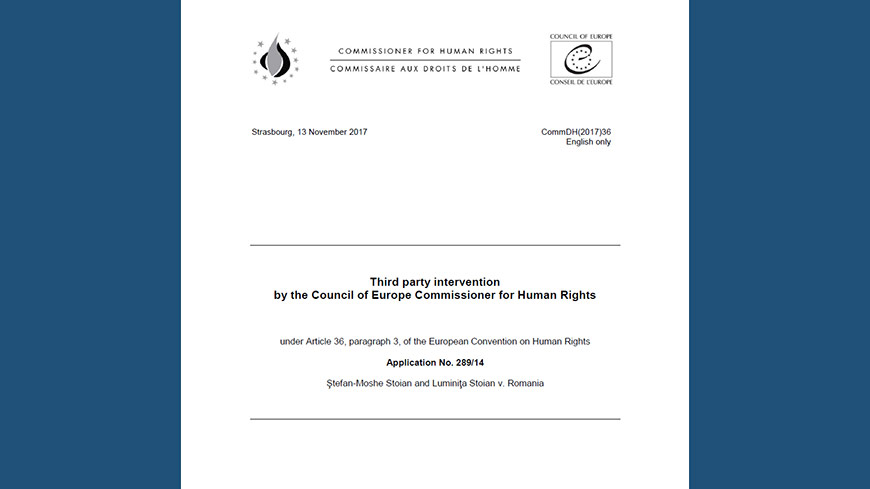“Equal access to education for children with disabilities is still hampered by serious shortcomings in law and in practice in the majority of member states” said today Commissioner Muižnieks while publishing his written observations submitted to the European Court of Human Rights on a case concerning access of a young student with a physical disability to mainstream education in Romania.
Based on his work on the right of children with disabilities to inclusive education in thirteen countries, including his 2014 report following his visit to Romania, and his 2017 Position Paper on fighting school segregation through inclusive education, the Commissioner highlights that “the situation in Romania – where inclusive education, reasonable accommodation and individual support function more as uncertain possibilities than as enforceable rights – provides a revealing illustration of a more general pattern in Europe”.
In this context, and in the light of the rights and principles enshrined in the UN Convention on the Rights of Persons with Disabilities (CRPD), the Commissioner stresses that the right to equal access to education for children with disabilities can only be implemented through inclusive education. He concludes that the widespread practice of refusing to provide reasonable accommodation to access mainstream education amounts to discrimination. Withholding the necessary individual supports renders meaningless the right of children with disabilities to equal access to education. Moreover, he stresses that the right of children with disabilities to access to education without discrimination remains illusory and theoretical in the absence of prompt and effective remedies to challenge allegations of rights violations in the area of education.
Third party interventions represent an additional tool at the Commissioner’s disposal to help promote and protect human rights. They are foreseen by the European Convention on Human Rights and are based on the Commissioner’s country and thematic activities.



